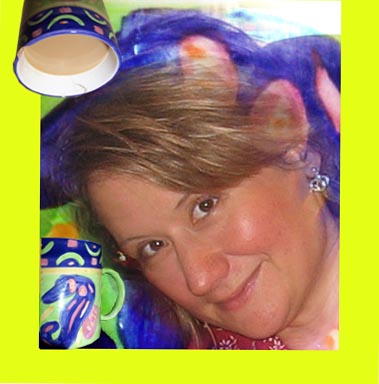Followers
Thursday, July 23, 2020
4 Stars for The Power by Naomi Alderman
The Power by Naomi Alderman takes science fiction to a level of realism that looks like a Francis Bacon painting. The particular Bacon painting that comes to mind is "Study after Velázquez's Portrait of Pope Innocent X," painted in 1953. Without the history behind this painting, it is a man who is fading in power. The Power is like that. Men lose their power as women become stronger, shooting lightning with the flick of their fingers. It's beautiful, mesmerizing, but terrifying. I did not see this book as particularly feminist despite the concept, but a book about power and what each individual does with it. I love how Alderman analysis power outside of gender, "The shape of power is always the same: it is infinite, it is complex, it is forever branching." I was also intrigued by the biblical references of the snake(aka skein), the rescue of Israel, and Mother Eve. It definitely makes the reader ponder rooted ideas about the beginnings of power in the same way I did when I read Margaret Atwood's poem, "Quattrocento". Despite, the excellent concept and plot making, I enjoyed Roxy's character the most. She is a Joan Jett bad ass singing Love Hurts through the novel. I greatly appreciated her resilience. Overall, this book was close to a five star review from me, but the beginning dragged with exposition and I did not get into some very onion peeling worth characters until much later. I absolutely recommend this book to men and women because we all need to question what power means to each one of us.
Sunday, July 12, 2020
4 Stars for The Cambridge Companion to Margaret Atwood
 The Cambridge Companion to Margaret Atwood by Coral Ann Howells was recommended to me by a friend and colleague who teaches Atwood poems to advanced students. I plan to teach The Handmaid's Tale this year and wanted more insight into it. I also want to use more of Atwood's poetry that is not easily accessible with a quick online search. Often students will look up the meaning of a poem or novel and this squashes their initial critical thinking. Generally, I like to read a novel first with only my third eye.
The Cambridge Companion to Margaret Atwood by Coral Ann Howells was recommended to me by a friend and colleague who teaches Atwood poems to advanced students. I plan to teach The Handmaid's Tale this year and wanted more insight into it. I also want to use more of Atwood's poetry that is not easily accessible with a quick online search. Often students will look up the meaning of a poem or novel and this squashes their initial critical thinking. Generally, I like to read a novel first with only my third eye.
I enjoyed the essay, Blindness and survival in Margaret Atwood's major novels, by Sharon R. Wilson. Wilson illustrated an insightful approach to novels like Oryx and Crake and Cat's Eye. I will have to read Oryx and Crake now, but I still did not connect with Cat's Eye. I really didn't like the narrator, Elaine, despite the interesting survival journey Atwood presented. I just don't like an emotionless character, even when the writer picked a palette of greys that lead to a marble in a red pocketbook, an insufficient ending. Offred in Handmaid's Tale also seemed void of emotion, but the situation made her character work for me rather than Elaine's. Offred had a reason to become indifferent. Her choices were eliminated. Elaine seemed to have too much choice.
Novels aside, I also enjoyed Branko Gorjup's Margaret Atwood's poetry and poetics. I adore Atwood's poem, Quattrocento. The line, "The kingdom of god is within you/because you ate it." Gorjup says, "Eve is metamorphosed into a true protean self as the whole of a diverse creation disappears into her and she is a free agent now, alive with possibility."
Eve as a free agent is fantastical.
I ended up with a four star rating for this, because some of it I did not understand as well as I would have liked on a first read, but I've only read three Atwood novels and a few poems. I will have to change that.
Subscribe to:
Posts (Atom)

